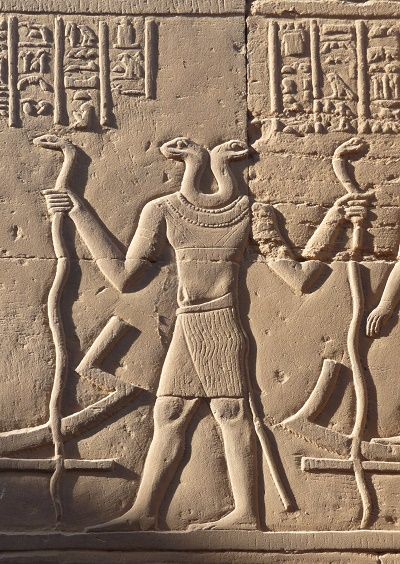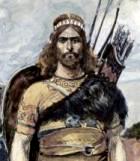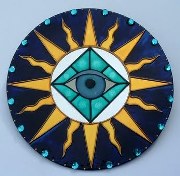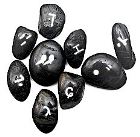Contacting the dead: mediums in the Bible
If you’ve ever lost someone dear to you, you’ll know how you long to talk to them.
And in fact, you probably do. Holding one-sided conversations with someone we loved, but who is no longer living, is an important part of grieving.
Some people take it a step further. They try to actually contact the spirit of the dead person, talk to them and ask their advice. Even though they know, logically, that this cannot be done, they cannot stop themselves trying.
They want
- contact with the dead person and
- guidance about some decision.
This is necromancy, and the Bible absolutely forbade it.
“There shall not be found among you any one who burns his son or his daughter as an offering, any one who practices divination, a soothsayer, or an augur, or a sorcerer, or a charmer, or a medium, or a wizard, or a necromancer.” (Deuteronomy 18:10-11)
 Necromancers who invoked ‘ghosts and familiar spirits’ were apparently common, for more than one king attempted to stamp out the practice. King Saul tried to ban the activities of sorcerers and necromancers yet, at the end of his life, even he turned to such a woman (1 Samuel 28:7-25).
Necromancers who invoked ‘ghosts and familiar spirits’ were apparently common, for more than one king attempted to stamp out the practice. King Saul tried to ban the activities of sorcerers and necromancers yet, at the end of his life, even he turned to such a woman (1 Samuel 28:7-25).
See this story at ‘the Witch of Endor’
People simply did not care if they were flouting the law. They needed guidance from dead members of their family, and so they sought it.
Magicians and Sorcerers
Magicians were common in the ancient world.

The Egyptian god Nehy holds a serpent staff in each hand at the temple at Kom Ombo
In the story of Moses at Pharaoh’s court, the magicians of Egypt turn their rods into serpents (Exodus 7:11).
This was a familiar trick among Egyptian practitioners.
It is no accident that the Devil in the Garden of Evil is portrayed as a serpent/snake. Egypt was the sink of iniquity as far as the priests of Yahweh were concerned, and magic, i.e. the serpent, was linked with Egypt.
Pharaoh’s sorcerers were also able to emulate Moses and Aaron
- when they turned the water of the Nile into blood (Exodus 7:22), see the Ten Plagues of Egypt and
- when they brought a plague of frogs upon the land (Exodus 8:7)
- but they were beaten when it came to calling up the plague of gnats (8:18) and
- were affected by the plague of boils along with the rest of Egypt (9:11).
Very few sorcerers are mentioned by name in the Bible, but when they are, there is no doubt about what the Bible thinks of them.
- Queen Jezebel was regarded as one (2 Kings 9:22), and sorcerers are condemned in no uncertain terms in Micah 5:12
- Menasseh, king of Judah, is condemned for encouraging sorcerers (II Kings 21:6)
- Ezekiel (Ezekiel 13:17-23) prophesies woe to the women who “sew magic bands upon their wrists and make veils for the heads of persons of every stature, in the hunt for souls!”
Search Box
![]()
© Copyright 2006
Elizabeth Fletcher






